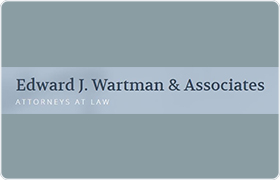CYBERSQUATTING
Buying a domain name that reflects the name of a business or famous person with the intent of selling the name back to the business or celebrity for a profit. T...
(more...)Buying a domain name that reflects the name of a business or famous person with the intent of selling the name back to the business or celebrity for a profit. The Anticybersquatting Consumer Protection Act of 1999 authorizes a cybersquatting victim to file a federal lawsuit to regain a domain name or sue for financial compensation. Under the act, registering, selling or using a domain name with the intent to profit from someone else's good name is considered cybersquatting. Victims of cybersquatting can also use the provisions of the Uniform Domain Name Dispute Resolution Policy adopted by ICANN, an international tribunal administering domain names. This international policy results in arbitration of the dispute, not litigation.
 x
x

 Edward Wartman Merrillville, IN
Edward Wartman Merrillville, IN
